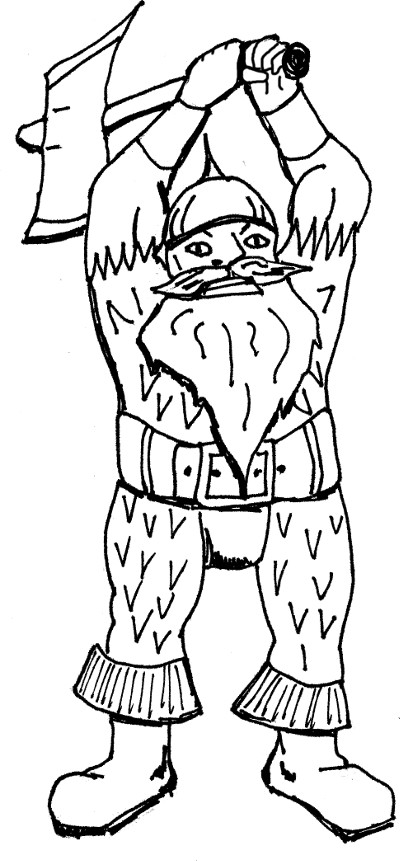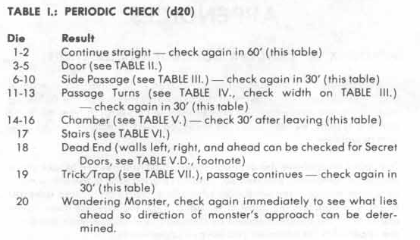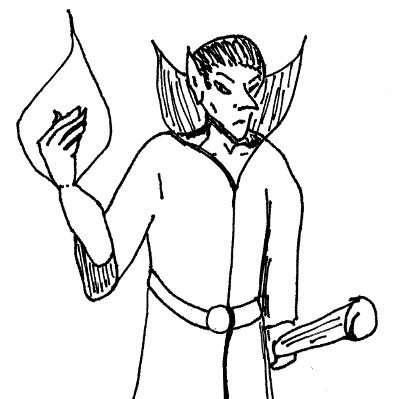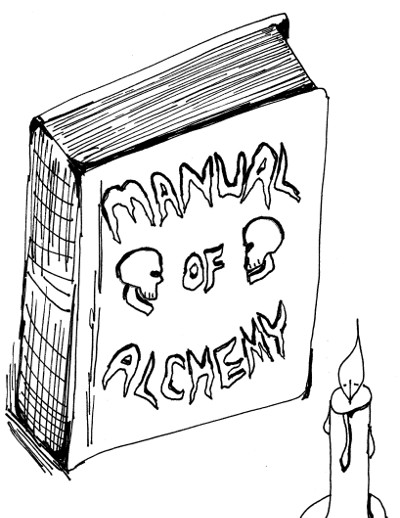In this post, I describe house rules I’m adding to my Basic Fantasy RPG campaign. Vast documentation about our gaming presents itself on EmptyZ, including several years of session reports.
From the beginning, my aim was to replicate the Swords & Sorcery experience as portrayed in the literature of Appendix N of the 1E DMG. I recommend Jeffro Johnson’s passionate writing on the topic as the most compelling argument for enjoying more of this genre. Furthermore, I aimed to expose my sons and the children of my friends to the wonder of D&D in the way it was originally conceived.
I knew most of my players experienced the genre secondhand at best. As a kid growing up in the 70s and 80s, I read little of the masters, and I count it as a blessing to enjoy many of these works for the first time as an adult. I wanted my sons to think of Gygax ahead of Skyrim, Anderson before Halo. We enjoy these modern works even more when we acknowledge from whence they came.
I also considered how the kids experienced infinite lives in the video games they play. I saw them using Minecraft creative mode often, hardcore mode never. We adults had some expectation that the low survivability of 1st level characters might prove traumatic to 9-year-olds. Despite the sheading of a few tears early on, the kids mostly took our coaching: roll up another guy and jump back in.
As in life generally, my approach is non-coercive. I never threatened my sons with spankings. I never threaten my players with a trip down a plot railroad. I tend towards an economic mindset where the system itself offers incentives and disincentives. If it’s gold you want, as a player you are advised to sneak it out of the dungeon when you can and avoid fights.
Being efficacious in the game world is the primary value. That is, being able to make the changes you want with relatively low effort. It’s hard building a castle when you’re 1st level, so you go out adventuring. Experience points (XP) are the currency traded in for the power to make a difference. I leverage that when adding rules so that I get a system that produces the experiences I estimate will be most enjoyable.
This was the direction from where I came as I built house rules recently to encourage more genre-compatible play. I noticed our primary party, Tienarth’s Raiders, were all playing against the stereotypes. The beefy dwarf fighter runs away if his hit points get low or he’s afraid his backpack will get wet. The ancient elf mage sometimes jumps into melee even though his AC is bad and he can only do 1 or 2 damage with his 4 strength. The thief refuses to steal or otherwise behave dishonestly.
I don’t want to dictate proper play. Occasional atypical behavior is one of the best spices in the hearty stew of roleplaying. I love that we have a name for the feeble dagger attacks from the mage: The Tienarth Tickle. I do want it to be unusual and a considered choice from the player.
I started by reading through the descriptions of races and classes in all editions through 2E: OD&D, Holmes, Moldvay, Mentzer, 1E. I also looked at splat books and what’s in Basic Fantasy. It was not surprised to find the earliest work to be sparse and the later work to be quite generic. I found enough concepts from the rest to produce lists of stereotypical aspects. For example, elves like to be in the wilderness, not the city.
I also thought about actions all adventurers take. We already have rewards for fighting and finding treasure. I like the idea of rewarding discovery itself. I want to encourage the players to head off into the forest because just finding a ruined fortress is interesting on its own, even better if there’s a skull carved out of diamond several levels underground.
For all players, I outlined ways to earn experience as follows.

- Defeating monsters in battle, per the standard rules.
- Trading 1 GP for 1 XP. I make them spend the GP. Just getting it out of the dungeon isn’t enough.
- 20 XP for each 1 HP of damage taken during combat. 10 XP per 1 HP of damage dealt by spell. I’m sure I first saw that idea when reading The Tao of D&D. I like that it make the most difference for low level characters. [See Note #1]
- Discovery of wonders or artifacts can earn variable, predetermined bonuses. If the players wander around the jungle and find an ancient pyramid, that’s great, so long as they survive to bring that story back to civilization. The same would apply to finding the thigh bone of a saint.
- Each race and class has a list of stereotypical behaviors. If the player can work those behaviors into play, I award a 1% XP bonus up to a maximum of 5%. As is standard in BFRPG, humans earn an automatic 10% bonus. Humans just have to be generally accepting of a wide variety of experiences.
Here’s my list for dwarves.
- Rugged, resilient, courageous. Endures hardship with no complaining or being afraid.
- Stubborn.
- Suspicious.
- Enjoy a hearty meal and/or a strong drink.
- Dour. Taciturn. Humorless, except black humor.
- Discovers something important based on knowledge of stonework.
- Adventures underground and not on water.
- Drives a hard bargain.
- Respects law or tradition.
- Acquires a double share of gold or gems measured by value.
Note how I’ve set up rule #10 to encourage greediness without leaving it abstract. If the dwarf can work it out so that he gets more than his fair share of the treasure, he gets a slight XP boost. I’d like to structure the rest in that way. It’s a work in progress.

Here’s my list for thieves.
- Steals. Also, the value of anything stolen awards 1 XP / 1 GP in value immediately. Can still be spent later on training.
- Uses dexterity to good effect, including thief skills.
- Successfully deciphers an unknown language or reads an arcane scroll.
- Attacks by surprise or behind and never in frontal assault.
- Avoids honest work. Runs a racket. Plays a trick for monetary gain.
As above with the dwarf, a thief is encouraged to steal if he can get away with it. A character who manages to play a trick that allows him to steal money from a sorry rube will end up with XP equal to the value stolen plus a bonus of 2% on the entire session’s share due to hitting points 1 and 5.
I must confess, none of this is playtested. It’s a work in progress as the game is always so. The complete rules are documented at Empty Z’s XP Bonuses. I’m sure I’ll updated them over the coming weeks.
Updates
- May 14th, 2020: I dropped the XP for damage taken. It was too much bookkeeping
- May 30th, 2020: The incentives have had an immediate, positive effect. Both thief and mage quit rushing in to fight side by side with the fighters. The halfling consistently pursues trouble-inducing curiosity. And one of the players gave me a dungeon map followed by a sonnet.



